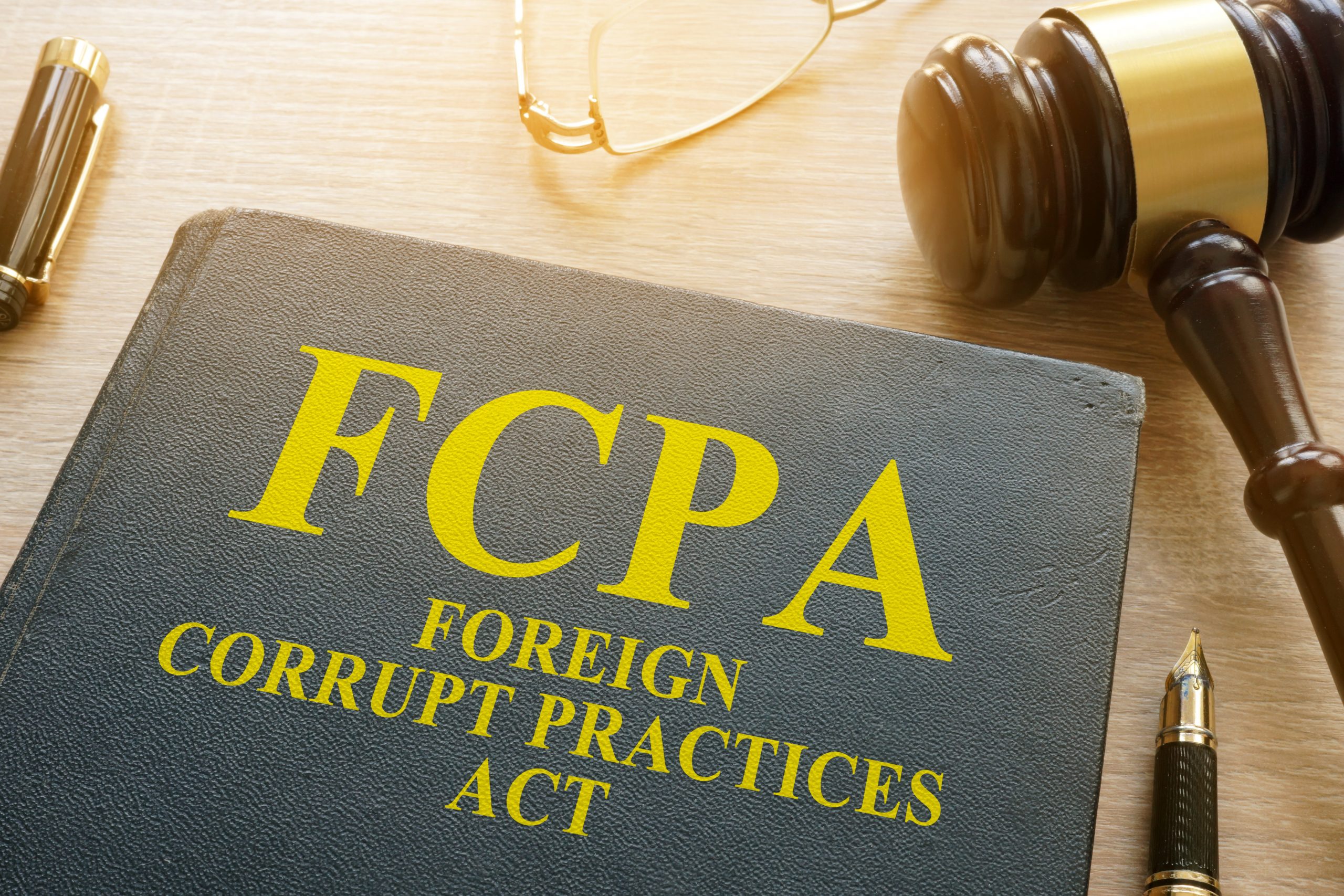In an increasingly globalized world, more and more companies and individuals conducting business abroad may find it confusing to navigate the uncharted legal waters of other nations as well as their own. In the U.S., The Foreign Corrupt Practices Act (FCPA) was passed to ensure that citizens and multinational companies would be prohibited from taking bribes to foreign officials in an effort to further business interests. Oftentimes those who are committing crimes abroad may not realize they are running afoul of U.S. laws.
The FCPA was amended in 1998 to include third-party intermediaries, such as consultants or distributors, who work in conjunction with U.S. citizens and firms to help conduct business abroad. In other words, the amendments were created to curb U.S. firms from employing a foreign entity to do the “dirty work” of bribing foreign officials to secure business. U.S. companies can be held liable for third party actions of improper conduct. The Department of Justice (DOJ) and Securities and Exchange Commission (SEC) may pursue action against actors who are found culpable through various legal theories of liability which include direct participation, authorization, knowledge, agency, aiding and abetting, and conspiracy.
Furthermore, The International Anti-Bribery and Fair Competition Act of 1998 amendments to the FCPA expanded liability to foreign nationals in U.S. territory, and also conversely, extended liability to all U.S. nationals outside of U.S. territory. However, the extent to which the government can enforce FCPA violations through different theories of liability can be too far-reaching.
This was the case in an August 2018 ruling by the Second Circuit Court of Appeals. According to the Congressional Research Service, the Second Circuit Court was asked to determine if a U.K. foreign national working for a French company that had a U.S. subsidiary could be liable for violating FCPA as an agent of the company’s U.S. subsidiary. The Second Circuit court concluded that the FCPA never intended to include foreign people who work for foreign companies unless they are agents of U.S. people or companies. In this particular instance, the French foreign national was not an agent for the U.S. subsidiary and was therefore acquitted on the FCPA charges for which he was previously convicted. Additionally, the circuit court found that there was no clear congressional intent to broaden the FCPA’s international reach.
It is important to remember that many countries have anti-corruption statutes that can be used to prosecute people in those jurisdictions. Although foreigners may have committed bribery, it is not always the job of the U.S. government to enforce penalties. If enforcement of the FCPA over foreign nationals like the one overturned by the Second Court is to continue, it will have to take place in a different circuit.
A trial court in the Seventh Circuit disagreed with the aforementioned decision when the judge dismissed the defendant’s motion to dismiss the FCPA indictment. In this case, the defendant, who was a Ukrainian national residing in Austria, argued that because he was not a U.S. citizen or residing in the U.S. he could not be charged under the FCPA. The judge went against the decision of the second court of appeals, deciding that Ukrainian nationals can still be charged with conspiracy to violate the FCPA, according to editors at The FCPA Blog.
Court decisions in separate circuits are not binding to each other, so we can expect to see discrepancies among circuit determinations regarding the extent to which the DOJ and SEC can charge foreign nationals. These charges may include conspiring to violate, or aiding and abetting a bribe under the FCPA. Both are serious charges, so it is vital for multinational companies and individuals to consult with an expert attorney like Padula Law to mitigate risk of misconduct or establish a strong defense that will protect both their business and reputation.





